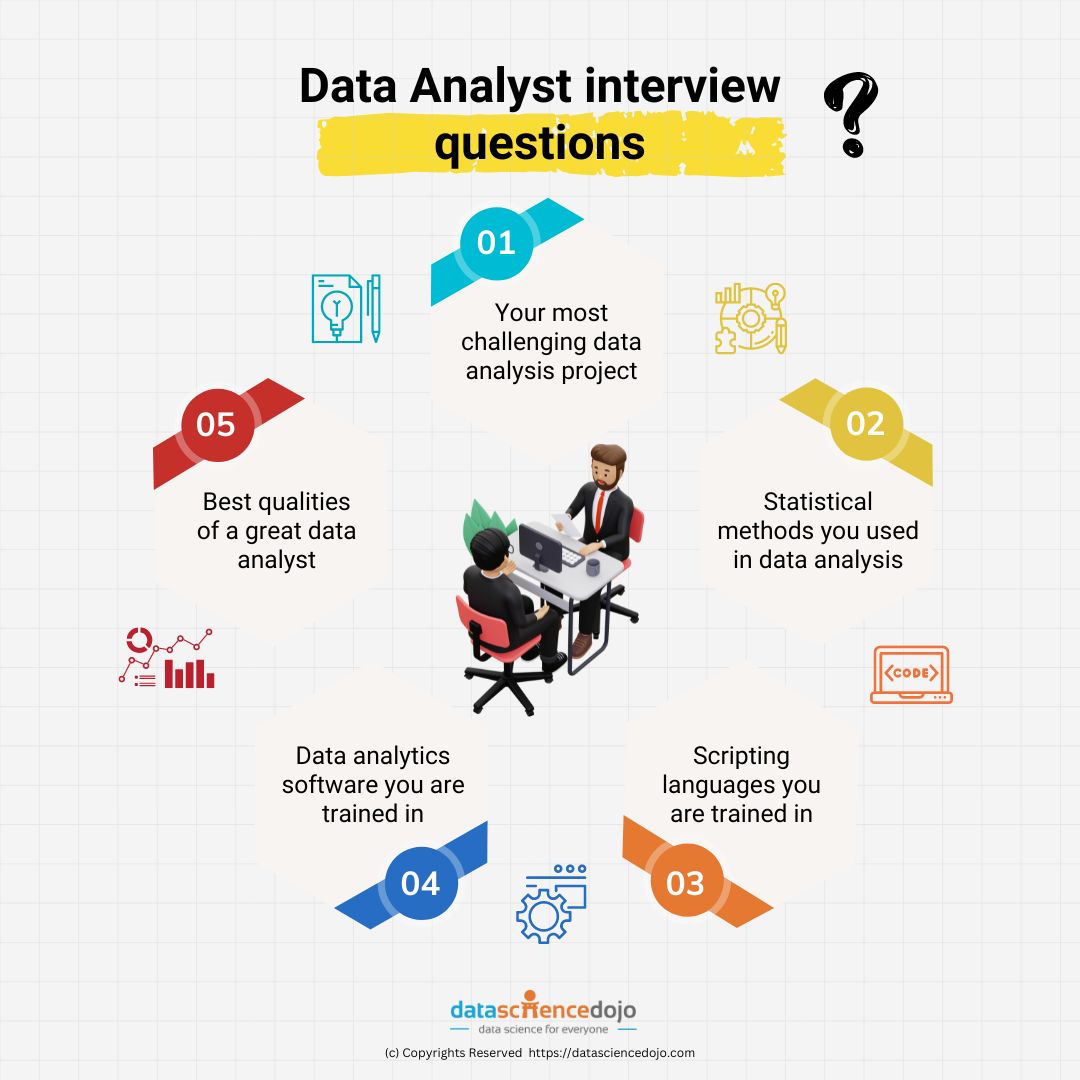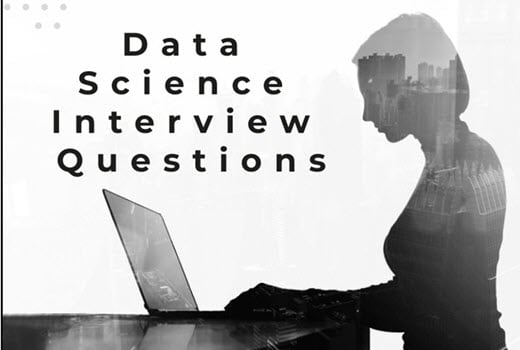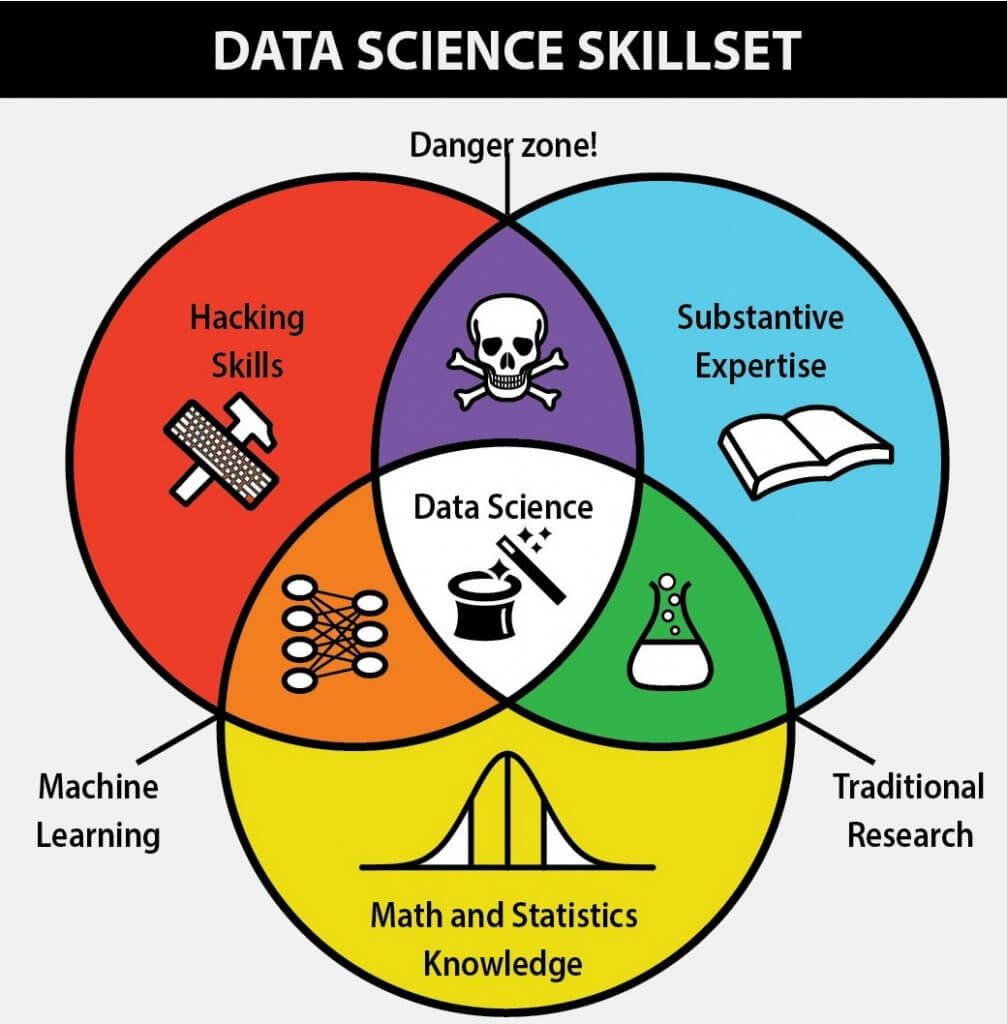The Role of Interview Questions in Data Science Recruitment
Interview questions play a pivotal role in the data science recruitment process, serving as a crucial tool for evaluating a candidate’s technical skills, problem-solving abilities, and communication skills. As data science continues to evolve and gain prominence across industries, the demand for skilled data scientists has surged, making the interview process a critical determinant of a candidate’s suitability for a role.
Data science interview questions serve as a gateway to understanding a candidate’s proficiency in various domains, including statistical inference, machine learning, data visualization, and predictive analytics. By asking the right questions, interviewers can assess a candidate’s ability to apply theoretical knowledge to real-world scenarios, identify patterns in complex data sets, and communicate insights effectively to stakeholders.
Moreover, data science interview questions help interviewers evaluate a candidate’s problem-solving skills, which are essential for tackling the myriad challenges that data scientists encounter daily. By posing open-ended questions that require candidates to think critically and creatively, interviewers can gauge a candidate’s ability to approach problems from different angles, devise innovative solutions, and adapt to evolving requirements.
Effective communication is another critical aspect of data science, and data science interview questions can help interviewers assess a candidate’s ability to articulate complex concepts in a clear and concise manner. By asking questions that require candidates to explain technical concepts to non-technical stakeholders, interviewers can evaluate a candidate’s communication skills and their ability to translate data insights into actionable business decisions.
In summary, data science interview questions are a vital component of the recruitment process, providing interviewers with valuable insights into a candidate’s technical skills, problem-solving abilities, and communication skills. By asking the right questions, interviewers can identify top talent, build a strong data science team, and drive business success.
Understanding the Data Science Landscape: A Brief Overview
Before delving into the intricacies of data science interview questions, it is essential to familiarize oneself with the data science domain. Data science is a multidisciplinary field that combines elements of statistics, computer science, and domain expertise to extract insights from data. It involves various methodologies, techniques, and tools that enable data scientists to analyze, model, and visualize data to drive business decisions.
At the core of data science lies statistical inference, which involves making inferences about a population based on a sample of data. Statistical inference is critical for hypothesis testing, data modeling, and predictive analytics, enabling data scientists to make informed decisions based on data insights. Probability theory is another foundational concept in data science, providing a framework for quantifying uncertainty and making predictions about future events.
Machine learning is a key area of focus in data science, enabling data scientists to build models that can learn from data and make predictions or decisions without being explicitly programmed. Machine learning algorithms can be broadly classified into three categories: supervised learning, unsupervised learning, and reinforcement learning. Supervised learning involves learning from labeled data, while unsupervised learning involves learning from unlabeled data. Reinforcement learning, on the other hand, involves learning from trial and error, enabling data scientists to build models that can adapt to changing environments.
Data visualization is another critical aspect of data science, enabling data scientists to convey complex data insights in a clear and concise manner. Data visualization tools such as Matplotlib, Seaborn, and Tableau enable data scientists to create interactive and visually appealing charts, graphs, and dashboards that can be used to communicate data insights to stakeholders.
In summary, data science is a multidisciplinary field that combines elements of statistics, computer science, and domain expertise to extract insights from data. Familiarizing oneself with the key concepts, methodologies, and tools of data science is essential before diving into data science interview questions, providing a strong foundation for answering interview questions and showcasing technical proficiency.
Crafting the Perfect Response: A ‘How-To’ Guide for Answering Data Science Interview Questions
Answering data science interview questions requires a strategic approach that showcases technical proficiency, problem-solving abilities, and communication skills. Here is a step-by-step guide on how to craft the perfect response:
-
Understand the question: Before diving into the response, ensure that you fully understand the question being asked. Clarify any ambiguities or uncertainties with the interviewer to avoid misunderstandings.
-
Plan your response: Take a moment to plan your response, outlining the key points that you want to cover. This will help you to structure your response in a logical and coherent manner.
-
Demonstrate technical proficiency: Use the appropriate technical terminology and concepts to demonstrate your technical proficiency. However, avoid using jargon that may confuse the interviewer or detract from the clarity of your response.
-
Showcase problem-solving abilities: Use real-world examples or case studies to demonstrate your problem-solving abilities. Explain the steps that you took to solve the problem, the challenges that you encountered, and the solutions that you implemented.
-
Communicate effectively: Use clear and concise language to communicate your response. Avoid rambling or going off on tangents, and ensure that your response is relevant to the question being asked. Use visual aids such as charts, graphs, or diagrams to convey complex data insights in a clear and concise manner.
-
Ask for feedback: After delivering your response, ask the interviewer for feedback. This will demonstrate your eagerness to learn and improve, and will also provide you with valuable insights into your strengths and weaknesses.
By following these steps, you can craft a compelling response to data science interview questions that showcases your technical proficiency, problem-solving abilities, and communication skills. Remember to remain calm, confident, and focused, and to tailor your response to the specific requirements of the question being asked.
Statistical Inference and Probability: Foundational Concepts for Data Science Interviews
Statistical inference and probability are foundational concepts in data science, playing a critical role in hypothesis testing, data modeling, and predictive analytics. These concepts are frequently assessed in data science interviews, requiring candidates to demonstrate their understanding and application in real-world scenarios.
Statistical inference involves making inferences about a population based on a sample of data. It is a critical concept in data science, enabling data scientists to make informed decisions based on data insights. In data science interviews, candidates may be asked to explain the principles of statistical inference, including sampling techniques, estimation, and hypothesis testing.
Probability theory is another foundational concept in data science, providing a framework for quantifying uncertainty and making predictions about future events. In data science interviews, candidates may be asked to explain the principles of probability theory, including probability distributions, conditional probability, and Bayes’ theorem. They may also be asked to apply probability theory in real-world scenarios, such as predicting the likelihood of a particular outcome based on historical data.
Hypothesis testing is a statistical technique used to evaluate whether a hypothesis about a population is supported by the data. In data science interviews, candidates may be asked to explain the principles of hypothesis testing, including null and alternative hypotheses, p-values, and significance levels. They may also be asked to apply hypothesis testing in real-world scenarios, such as evaluating the effectiveness of a marketing campaign or assessing the impact of a product feature on user behavior.
Data modeling is a critical aspect of data science, enabling data scientists to build models that can predict future outcomes based on historical data. In data science interviews, candidates may be asked to explain the principles of data modeling, including regression analysis, time series analysis, and machine learning algorithms. They may also be asked to apply data modeling techniques in real-world scenarios, such as predicting customer churn or forecasting sales revenue.
Predictive analytics is a data science technique used to make predictions about future events based on historical data. In data science interviews, candidates may be asked to explain the principles of predictive analytics, including data mining, machine learning, and statistical modeling. They may also be asked to apply predictive analytics techniques in real-world scenarios, such as predicting customer behavior or identifying fraudulent transactions.
In summary, statistical inference and probability are foundational concepts in data science, playing a critical role in hypothesis testing, data modeling, and predictive analytics. Familiarizing oneself with these concepts is essential before diving into data science interview questions, providing a strong foundation for answering interview questions and showcasing technical proficiency.
Machine Learning Algorithms: A Key Focus Area for Data Science Interviews
Machine learning algorithms are a critical area of focus in data science interviews, enabling data scientists to build models that can learn from data and make predictions or decisions without being explicitly programmed. Familiarizing oneself with machine learning algorithms is essential before diving into data science interview questions, providing a strong foundation for answering interview questions and showcasing technical proficiency.
Machine learning algorithms can be broadly classified into three categories: supervised learning, unsupervised learning, and reinforcement learning. Supervised learning involves learning from labeled data, where the input data is paired with the correct output. In data science interviews, candidates may be asked to explain the principles of supervised learning, including linear regression, logistic regression, and support vector machines. They may also be asked to apply supervised learning techniques in real-world scenarios, such as predicting customer churn or identifying fraudulent transactions.
Unsupervised learning involves learning from unlabeled data, where the input data is not paired with the correct output. In data science interviews, candidates may be asked to explain the principles of unsupervised learning, including clustering, dimensionality reduction, and anomaly detection. They may also be asked to apply unsupervised learning techniques in real-world scenarios, such as customer segmentation or recommendation systems.
Reinforcement learning involves learning from trial and error, where an agent takes actions in an environment to maximize a reward signal. In data science interviews, candidates may be asked to explain the principles of reinforcement learning, including Q-learning, SARSA, and policy gradients. They may also be asked to apply reinforcement learning techniques in real-world scenarios, such as robotics or game playing.
In data science interviews, candidates may also be asked to compare and contrast different machine learning algorithms, evaluating their strengths and weaknesses in different scenarios. They may be asked to explain the bias-variance tradeoff, overfitting and underfitting, and cross-validation techniques. They may also be asked to explain the principles of deep learning, including neural networks, convolutional neural networks, and recurrent neural networks.
In summary, machine learning algorithms are a key focus area in data science interviews, enabling data scientists to build models that can learn from data and make predictions or decisions without being explicitly programmed. Familiarizing oneself with machine learning algorithms is essential before diving into data science interview questions, providing a strong foundation for answering interview questions and showcasing technical proficiency.
Data Visualization and Communication: A Crucial Aspect of Data Science Interviews
Data visualization and communication are crucial aspects of data science interviews, enabling data scientists to convey complex data insights in a clear and concise manner. Familiarizing oneself with data visualization tools and techniques is essential before diving into data science interview questions, providing a strong foundation for answering interview questions and showcasing communication skills.
Data visualization involves presenting data in a graphical or pictorial format, enabling data scientists to identify patterns, trends, and outliers in large data sets. In data science interviews, candidates may be asked to explain the principles of data visualization, including chart types, color theory, and visual hierarchy. They may also be asked to apply data visualization techniques in real-world scenarios, such as creating a dashboard for a marketing campaign or visualizing customer demographics.
Communication is another critical aspect of data science interviews, enabling data scientists to explain complex concepts and data insights to non-technical stakeholders. In data science interviews, candidates may be asked to explain technical concepts in simple terms, create a presentation for a non-technical audience, or answer questions about their communication style. They may also be asked to provide examples of their communication skills, such as a report or presentation they have created in a previous role.
In data science interviews, candidates may also be asked to compare and contrast different data visualization tools, evaluating their strengths and weaknesses in different scenarios. They may be asked to explain the principles of data storytelling, including narrative structure, data-driven insights, and visual design. They may also be asked to explain the principles of user experience (UX) design, including user research, prototyping, and testing.
In summary, data visualization and communication are crucial aspects of data science interviews, enabling data scientists to convey complex data insights in a clear and concise manner. Familiarizing oneself with data visualization tools and techniques is essential before diving into data science interview questions, providing a strong foundation for answering interview questions and showcasing communication skills.
Big Data and Cloud Computing: Emerging Topics in Data Science Interviews
Big data and cloud computing are two emerging topics in data science interviews, enabling data scientists to handle large-scale data sets and process data in real-time. Familiarizing oneself with big data and cloud computing technologies is essential before diving into data science interview questions, providing a strong foundation for answering interview questions and showcasing technical proficiency.
Big data refers to extremely large data sets that may be structured, semi-structured, or unstructured, and may be analyzed computationally to reveal patterns, trends, and associations. In data science interviews, candidates may be asked to explain the principles of big data, including data lakes, data warehouses, and data streaming. They may also be asked to apply big data technologies in real-world scenarios, such as creating a data pipeline for social media data or implementing a recommendation engine for e-commerce.
Cloud computing refers to the delivery of computing services over the internet, including servers, storage, databases, networking, software, analytics, and intelligence. In data science interviews, candidates may be asked to explain the principles of cloud computing, including infrastructure as a service (IaaS), platform as a service (PaaS), and software as a service (SaaS). They may also be asked to apply cloud computing technologies in real-world scenarios, such as deploying a machine learning model in the cloud or implementing a data analytics solution in a cloud environment.
In data science interviews, candidates may also be asked to compare and contrast different big data and cloud computing technologies, evaluating their strengths and weaknesses in different scenarios. They may be asked to explain the principles of distributed computing, including MapReduce, Spark, and Hadoop. They may also be asked to explain the principles of containerization, including Docker and Kubernetes, and their role in data science workflows.
In summary, big data and cloud computing are two emerging topics in data science interviews, enabling data scientists to handle large-scale data sets and process data in real-time. Familiarizing oneself with big data and cloud computing technologies is essential before diving into data science interview questions, providing a strong foundation for answering interview questions and showcasing technical proficiency.
Preparing for Data Science Interviews: Tips and Best Practices
Preparing for data science interviews can be a daunting task, but with the right approach and resources, you can increase your chances of success. In this section, we will offer practical tips and best practices for preparing for data science interviews, including advice on how to practice answering interview questions, build a strong portfolio, and network with industry professionals.
Practice Answering Interview Questions
Practice makes perfect, and the same is true for data science interview questions. Start by familiarizing yourself with common interview questions and practice answering them out loud. Consider recording your responses and reviewing them to identify areas for improvement. You can also practice answering interview questions with a friend or mentor, who can provide feedback and suggestions for improvement.
Build a Strong Portfolio
A strong portfolio can demonstrate your skills and experience to potential employers. Consider creating a personal website or blog where you can showcase your projects, publications, and contributions to the data science community. Make sure to include a variety of projects that demonstrate your technical skills, problem-solving abilities, and communication skills.
Network with Industry Professionals
Networking can open doors to new opportunities and provide valuable insights into the data science industry. Consider attending data science conferences, meetups, and workshops, where you can meet industry professionals and learn about the latest trends and technologies. You can also join data science communities and forums, where you can ask questions, share your knowledge, and connect with other data science professionals.
Stay Up-to-Date with the Latest Trends and Technologies
The data science landscape is constantly evolving, and staying up-to-date with the latest trends and technologies is essential for success. Consider subscribing to data science blogs, podcasts, and newsletters, where you can learn about the latest developments and insights. You can also participate in data science competitions and challenges, where you can test your skills and learn from others.
In summary, preparing for data science interviews requires a strategic approach and a commitment to continuous learning. By practicing answering interview questions, building a strong portfolio, networking with industry professionals, staying up-to-date with the latest trends and technologies, and showcasing your problem-solving abilities and communication skills, you can increase your chances of success and stand out in a competitive job market.







